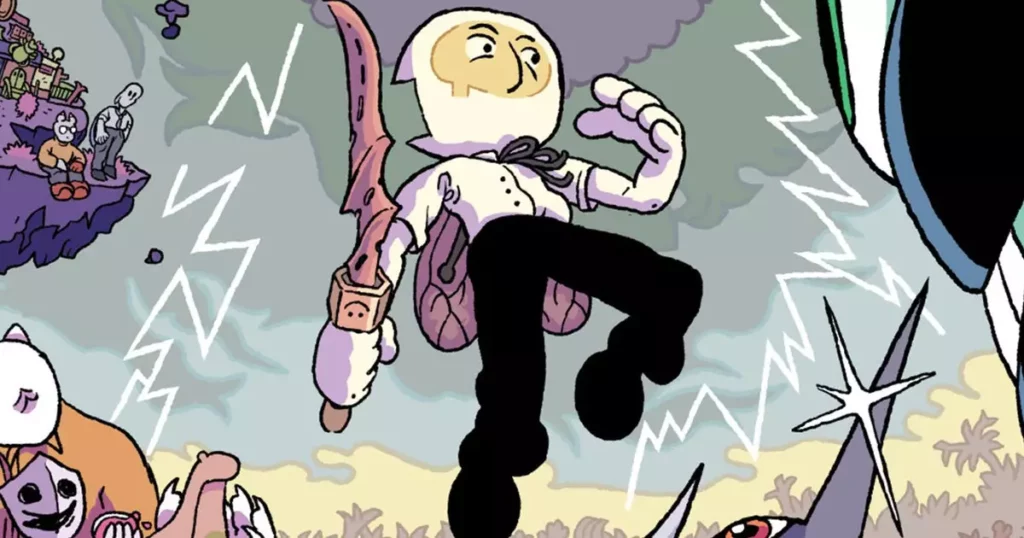In a landscape saturated with predictable genre mashups, Blanksword boldly steps forward as a game that refuses to conform. Its unique blend of roguelike mechanics with narrative-rich RPG elements sets it apart from the countless titles that haphazardly combine genres without purpose. The game’s premise—an angel, brainless yet surviving—a metaphor for a fragmented but resilient identity—immediately signals an ambitious attempt at storytelling. It’s a daring move in an era where many indie developers lean heavily on nostalgia, often delivering derivative experiences. Blanksword, however, attempts to reimagine the way genres can interact, not just co-exist. This effort is not merely for novelty but to serve a deeper narrative and gameplay purpose. The challenge here lies in balancing these contrasting elements—roguelike unpredictability paired with a compelling story—without compromising the core experience. If it succeeds, it could pave the way for a new standard among indie titles, proving that genre fusion, when done intentionally, offers far more than just superficial novelty.
Design Choices as a Reflection of Thematic Depth
What makes Blanksword particularly compelling is its thematic foundation: a protagonist stripped of his identity and reliant on fractured memories to piece himself together. The game’s mechanics mirror this narrative design through its unique “angelic brain parts” system. These parts are not only gameplay tools but symbolic fragments of identity and memory. The ability to customize your protagonist’s capabilities—whether to intimidate foes, decipher complex ideas, or haggle better—embodies a core philosophical idea: even in fragmented form, self-awareness and agency are possible. This mechanic empowers players to craft their own version of Blank based on how they choose to restore his mind, but with limitations to prevent overpowered builds. Such design choices elevate Blanksword beyond mere gameplay; it challenges players to consider the importance of memory, identity, and the reconstructive nature of consciousness. It’s a bold attempt to intertwine story and mechanic, creating a layered experience that encourages reflection amid the chaos of procedurally generated worlds.
Potential and Pitfalls of Indie Creativity
Blanksword’s pedigree hints at a game rooted in a passionate, albeit niche, development ethos. With connections to creator Mortis Ghost and former OFF translator Quinn K., the project’s artistic and narrative influences are clear. This association elevates expectations, especially among fans of avant-garde indie titles. However, the development trajectory remains uncertain, as funding is still in the background and a release window is estimated several years away. The game’s potential hinges heavily on its ability to maintain creative integrity amidst commercial pressures. There’s a danger that what begins as a deeply innovative project could distort into a more conventional product if financial constraints push the team toward safety rather than bold experimentation. That being said, the game’s indie roots could also serve as a safeguard, allowing it to prioritize artistic vision over mainstream appeal. The upcoming Kickstarter and demo are critical stages—not merely as fundraising tools but as tests of whether Blanksword can deliver on its promise. If it does, the game won’t just be another indie RPG; it could become a benchmark for genre-breaking design.
Why Center-Right Perspectives Could View Blanksword Favorably
From a center-right liberal perspective, Blanksword embodies a balance of creative independence and thoughtful innovation—qualities that resonate with principles of individualism and artistic freedom. By resisting industry norms, it champions the idea that meaningful innovation often stems from defying convention. Its emphasis on narrative depth and mechanic customization aligns with a belief in empowering individual expression within game design. The game’s approach to creating a fragmented protagonist mirrors broader societal themes of resilience and agency, reinforcing the value of personal responsibility and self-determination. Moreover, its indie origins demonstrate how small teams can produce culturally significant works that challenge the status quo and push the boundaries of art. This could serve as a reminder that meaningful progress in gaming—and perhaps broader culture—depends on supporting creative ventures that refuse to conform, provided they maintain a level of quality and ambition.
Blanksword stands as an audacious attempt to merge disparate genres into a cohesive, thematically rich experience. Its success—or failure—will likely influence not just how indie RPGs are crafted but how the industry perceives genre boundaries themselves. If it manages to stay true to its innovative spirit, it might not only carve out a niche but redefine what players can expect from indie games in the coming years.









Leave a Reply